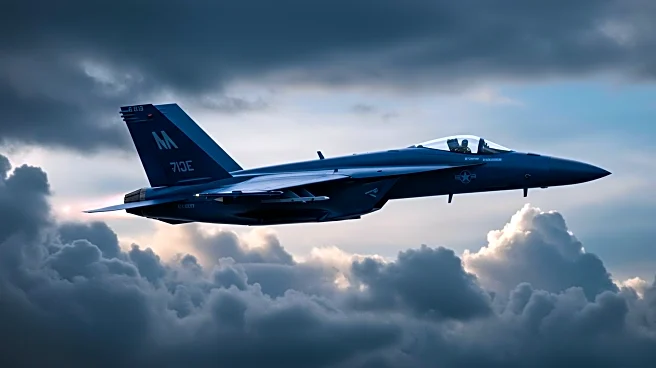What's Happening?
The U.S. Navy is grappling with budget constraints as it seeks to develop its sixth-generation combat aircraft, the F/A-XX. The Navy's plans for this advanced fighter are facing pushback from budgetary authorities who are prioritizing the Air Force's F-47 program. This has led to concerns that the F/A-XX could be delayed or effectively canceled. Additionally, the Navy is exploring options for replacing its T-45 training jets, with several companies, including Boeing and Lockheed Martin, vying for the contract. The Navy's spending priorities, particularly in shipbuilding, are under scrutiny, and the funding for these aviation projects remains uncertain.
Why It's Important?
The development of the F/A-XX is crucial for maintaining the U.S. Navy's air superiority and ensuring its carrier air wings remain competitive. Delays or cancellations could impact the Navy's operational capabilities and its ability to project power globally. The T-45 replacement program is also significant, as it will determine the future of naval pilot training. The outcome of these budgetary decisions will affect defense contractors and the broader defense industry, influencing job creation and technological advancements. The Navy's ability to balance its budget while advancing critical programs is a key concern for military planners and policymakers.
What's Next?
The Navy will continue to navigate its budgetary challenges, seeking to secure funding for the F/A-XX and T-45 replacement programs. Congressional decisions on defense appropriations will play a pivotal role in determining the future of these projects. The Navy may need to make strategic compromises or seek alternative funding solutions to advance its priorities. The outcome of these deliberations will have long-term implications for the Navy's capabilities and the defense industry's landscape.










